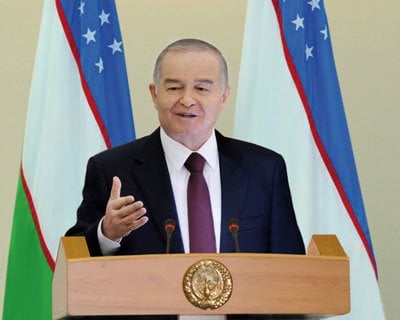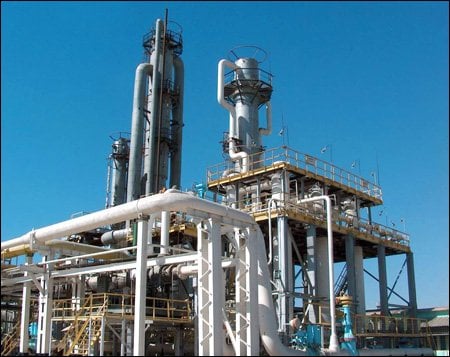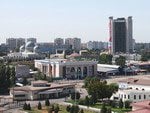Mehmood Ul Hassan Khan
The Republic of Uzbekistan is applying a holistic policy for the socio-economic transformation of its institutions and common people alike. Economic stability is rated as supreme. Mass industrialization, gradual economic liberalization, banking and financial reforms and the last but not the least, economic diversification are among the top priorities of Uzbekistan. Visionary leadership of President H.E. Mr. Islam Karimov plays an important role in achieving the desired socio-economic prosperity goals. Following are given some salient features of its priorities for socio-economic policy.
(a) Technological Advancement, Industrialization, and Investments
According to priorities of socio-economic policy (2013-14), the years 2014 will mark the commissioning of major high-tech industries, modern facilities and capacities, growth and intensification of investment processes in Uzbekistan. Total volume of capital investment from all sources of funding will make up $14.3 billion with an increase 10.1 percent YOY, maintaining the share of investment in fixed assets to GDP at 23 percent, the level of 2013.
Moreover, 73 percent of all investments will be allocated to industrial construction, and 40 percent of capital investments will go to the purchase of machinery and equipment. It is projected to draw over $3.9 billion of foreign investments and loans with 29 percent increase YOY. It is noteworthy that 69 percent of total foreign investment is direct investment, which in 2014 will increase by 22.4 percent. In general, more than 150 big manufacturing facilities will be commissioned throughout the year with a total cost of $4.4 billion.
According to the UN report (2012-13), Uzbekistan recorded one of the highest economic growth rates in the Commonwealth of Impendent States (CIS) in 2011 and 2012. Owning to which, it remained among the region’s most rapidly expanding economies as a result of broad industrial expansion.
Uzbekistan, with the goal of becoming an industrialized, high middle-income country by around 2050, is continuing to transition to a more market-oriented economy to ensure equitable distribution of growth between regions and to maintain infrastructure and social services.
(b) Profitability of Enterprises and Creation of a favorable Business Environment
According to official report, more than 140 enterprises across the country, including 67 big enterprises, are unprofitable which must be developed in order to speed-up pace of industrialization in the country. Creation of a favorable business environment should also be prioritized. Uzbekistan introduced the principle of priority rights of a business entity. Last year alone, the country canceled more than 80 types of licensing procedures, 15 licensed activities,. More focus should be given to shortening, simplifying and cheapening of different licensing procedures for commissioning and management of business entities, as well as prevention and elimination of unnecessary bureaucratic barriers to entrepreneurship.
(c) Institutionalization of E-Commerce
Further development of e-commerce is another important element of socio-economic policy. For further strengthening of e-commerce in the country it has issued more than 10 million plastic cards, including about 2.5 million online cards. More concrete efforts ought to be institutionalized in the field of e-commerce.
(d) Rapid Social Development
One of the cornerstone of this policy is rapid social development i.e. provision of jobs, housing and community development, further improvement of education and healthcare remain in priority this year. In general, about 60 percent of all budget expenditures will be allocated to the social sector. Furthermore, a million jobs will be created in 2014, of which about 500,000 jobs for graduates of vocational colleges. 11,000 standard design houses with a total area of 1.5 million square meters will be built in 388 rural residential areas.
Previously, to speed-up the different social development programs Uzbekistan adopted a state programme “The Year of Well-being and Prosperity” in 2013. It consisted of 8 sections and 86 clauses, which determined main direction of social-economic, spiritual and political development of Uzbekistan and concretized mechanisms, ensuring improvement of population prosperity, social stability, peace and well-being in each family and society. State and non-governmental organizations, civil society institutes, self-governing bodies and citizens participated in its implementation. The document set concrete executors, terms of implementation, source of financing and monitoring system, etc. 6.655 trillion soums or US$919.2 million was directed to implementation of the said programme.
It increased well-being and real income of population and raised employment rates. It enhanced pace of small and private businesses, farms and improved state targeted welfare of population. It increased salaries of works of the budget organizations, pensions, stipends and allowances at least 23 percent in 2013.
Comparative Study of Uzbekistan Social Policy (Before & After 2007)
Before 2007 After 2007
Social orientation of transition period Transition from ‘socially-oriented’ policy to ‘pro poor’ macroeconomic and institutional reforms
Full coverage of social policy to avoid sharp fall in living standards (in early years of transition) Consolidation of all macroeconomic, sector and regional programs into a single strategy to provide complexity and synergies
Targeted measures of public policy against individual groups of population Attempting to reconsider macroeconomic policy from ‘export led’ growth to ‘investment-led’ growth
Narrowing of coverage, strengthening of target measures and increasing of volumes of social assistance Localization of national priorities and regional development strategies
Source: World Bank Reports (different)
(e) Education
In education sector will receive over 410 billion soums. Reconstruction and overhauling of 380 schools and 161 vocational colleges and academic lyceums will also be carried out in 2014.
(f) Health
Health sector will also be developed. It will envisage the construction of CIS’s first specialized multidisciplinary pediatric clinic of the level 4, which is the highest international standard, designed for 250 beds and a polyclinic for 200 visits per shift, at the expense of the Government of the Republic of Korea in the amount of $103
million. A total of over 407 billion soums will be allocated this year to strengthen the logistical capacity of healthcare institutions. More than $28 million of concessional loans will be attracted from international financial institutions to equip medical facilities.
Conclusion
Well-being of the common people has been prioritized and its dividends can be seen in terms of better health, education, housing and economic stability in Uzbekistan. Job creation policy of the government has already been channelized the energies of youth in right direction. Strong, stable and sustainable macro-economic performance supports nets of social development in the country.



